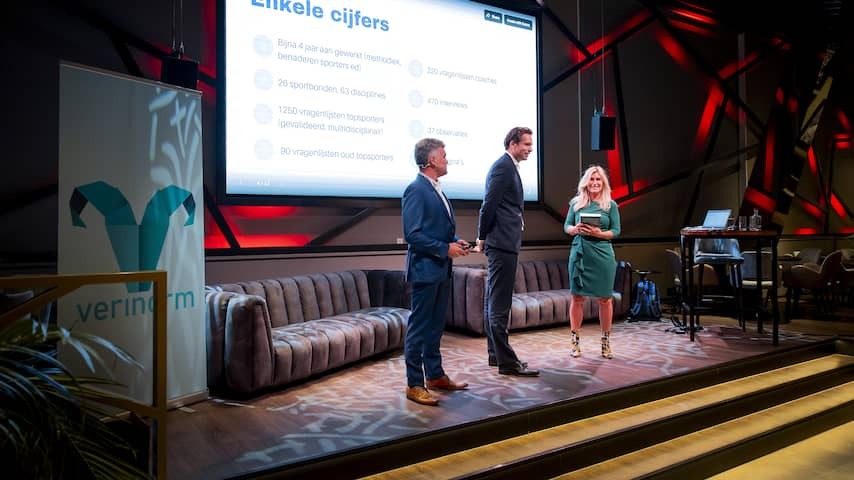
A quarter of Dutch elite athletes have experienced cross-border behavior. NOC*NSF is shocked by this conclusion from a large study into the Dutch elite sports culture and wants to do more for prevention. But according to the sports umbrella organization, extra money is needed for this.
On his last working day as outgoing State Secretary for Youth, Prevention and Sport, Vincent Karremans will receive the result of more than three years of research into Dutch elite sport on Wednesday morning in the Johan Cruijff ArenA.
“It is strange that such a small country performs so well at elite sports level,” says the VVD member, who will be installed as the new Minister of Economic Affairs on Tuesday. “But it is good that we are not just running ahead. The topics from this research are very important, so I am putting it in my transfer file.”
In the report entitled Vlammende Ambitie (Blazing Ambition), researchers Marjan Olfers (Professor of Sport and Law at the Vrije Universiteit Amsterdam) and Anton van Wijk (criminologist and psychologist at research agency Verinorm) dissect the good, but also the less good sides of Dutch elite sport in 464 pages.
Of the seven conclusions, the fifth stands out the most. Approximately a quarter of elite athletes have experienced cross-border behavior in the past year. This mainly involves gossip. But physical and mental violence, coercion, blackmail, abuse of power, bullying, discrimination and unwanted sexual behavior are also mentioned.
“Relatively speaking, it is not too bad. And usually the unwanted behavior is verbal in nature. But there are still elite athletes who are having a hard time,” says Olfers. “The general picture is good, but that is statistics. Every example of an athlete who spoke to us and experienced sad things is one too many. We have to do something about that.”
The implementation of these measures will lie with the federations and especially with NOC*NSF. Director of elite sport André Cats of the sports umbrella organization states on Wednesday that Dutch sport has already “gone through a major development this century when it comes to having an eye for the person behind the athlete”.
But Cats also acknowledges that it “always has to be better”. “If a quarter of Dutch athletes experience unwanted behavior, that is far too much. We must not run away from that. Bullying, discrimination; those are things that really cannot be done. So I am going to read this report very carefully and we will draw lessons from it.”
According to researchers Olfers and Van Wijk, this emphasis on delivering performance may be the most important pillar under the Dutch sports culture. “We are very focused on medals and the medal table here,” says Olfers.
Cats emphasizes that NOC*NSF has already switched to the principle of ‘shining medals’ in recent years. “We want medals, but not at any cost,” says the director of elite sport.
Cats also repeats his call, particularly to the government, that NOC*NSF needs more money. “I just heard the State Secretary enthusiastically talk about his experiences at the Paris Games on the podium. But then I am disappointed that we cannot take an extra financial step.”
According to Cats, these extra resources are also needed to better prevent cross-border behavior. “For example, we would like to connect more psychologists to our elite sports programs. But we don’t have that budget now. So yes: we need more money to do more against unwanted behavior.”